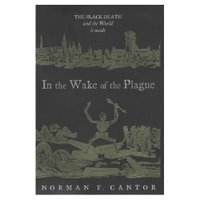
In the Wake of the Plague by Norman Cantor
A study of what happened as a result of the Black Death. Most historians concentrate on the plague while it was ravaging people rather than what happens afterwards. This is different and recounts how after the plague there was a power shift, with the British losing the chance to seize more land in France; entire land-owning families were wiped out; it increased anti Âsemitismm as the Jews were seen as responsible. It is a good look at the powervacuumm and the politicalupheavall left by the plague.

A Journal of a Plague year by Daniel Defoe
Along with the relevant passages from Samuel Pepys diaries about the plague in London in 1665 this is a very good insight into the fear, belief in anything that might stave off the disease and the decline of human behaviour under great strain. It has an authentic voice because Defoe witnessed the plague himself, despite being five at the time, and the story is told against a background ofevocativee descriptions of London this is a book, that although criticised by some for its historical accuracy, is a deserved benchmark on a historical/novelisation of the impact of the plague.

Year of wonders by Geraldine Brooks
My wife described this as a historical romantic novel and that is probably the best description and it wasn't something I enjoyed naturally coming from a background of non-fiction reading. It takes Eyam, the village ravaged by the plague, and tells the story of the spread and reaction of the disease from the view point of a widower who becomes linked with the rector, who is the one who demands everyone stays in the village and faces death with the 17th century equivalents of stiff upper lips. It all becomes a bit too Mills and Boon for my liking at the end but for those people turned off by non-fiction then it might be an easier route to engage with the subject of the plague.








